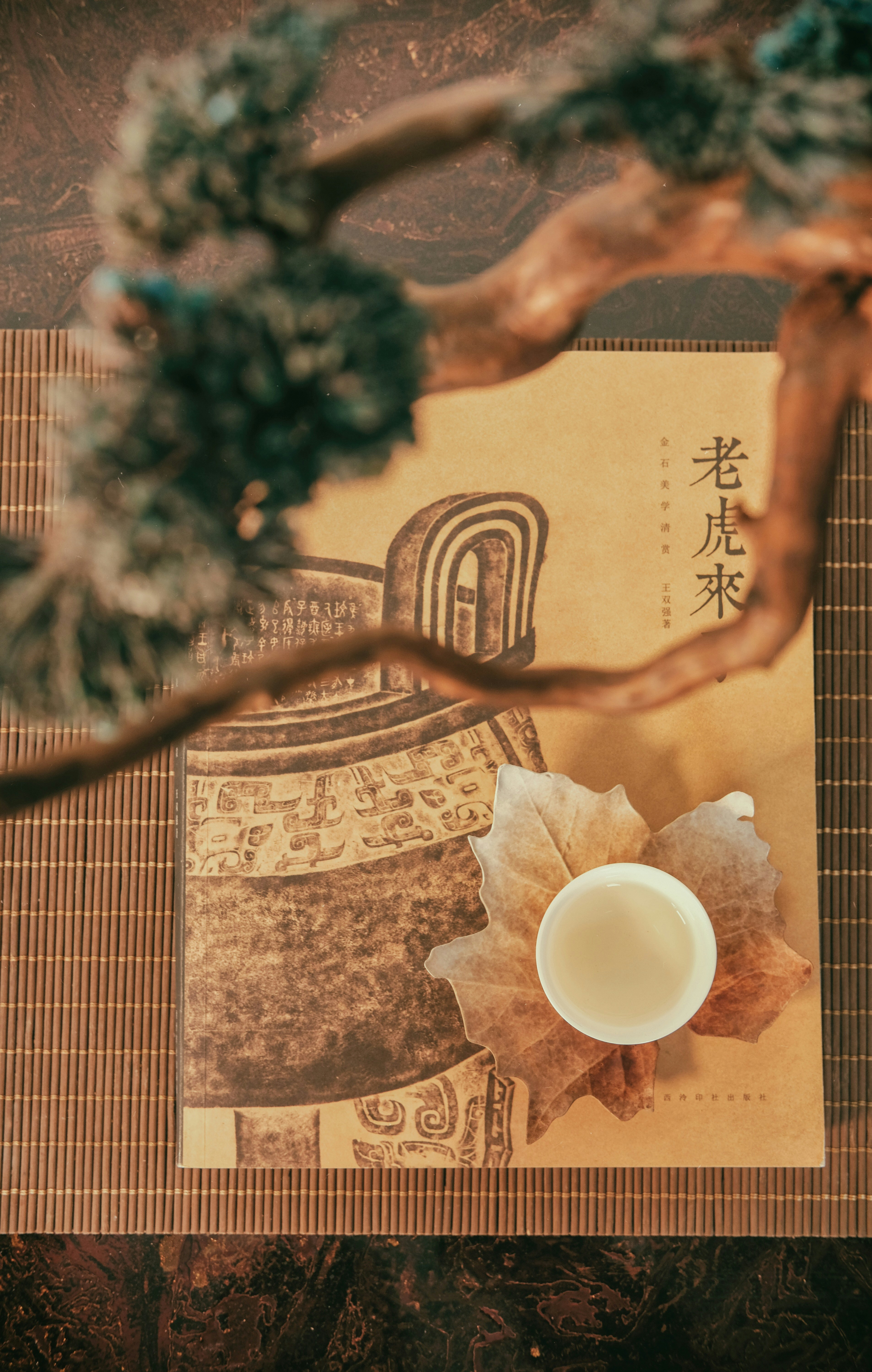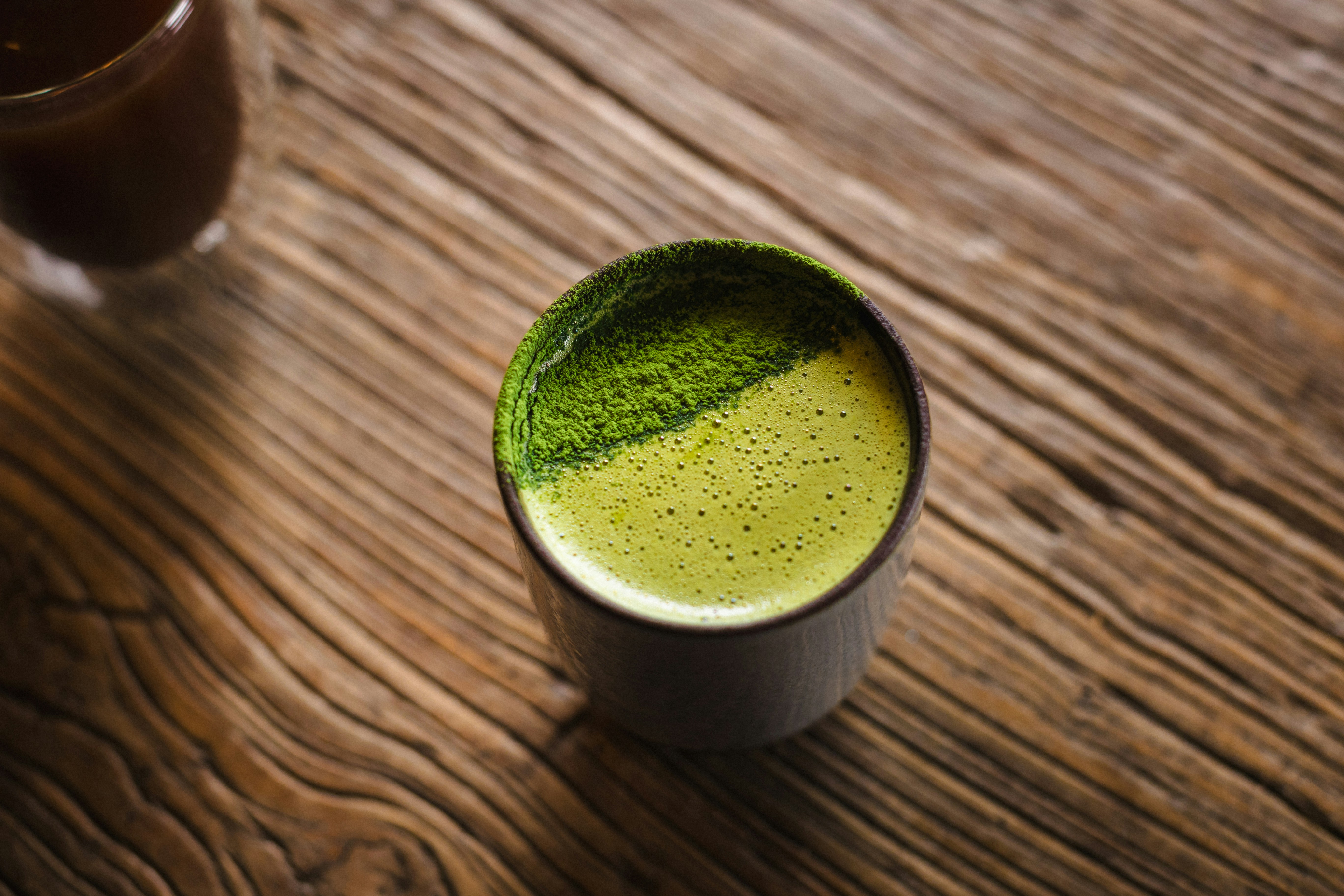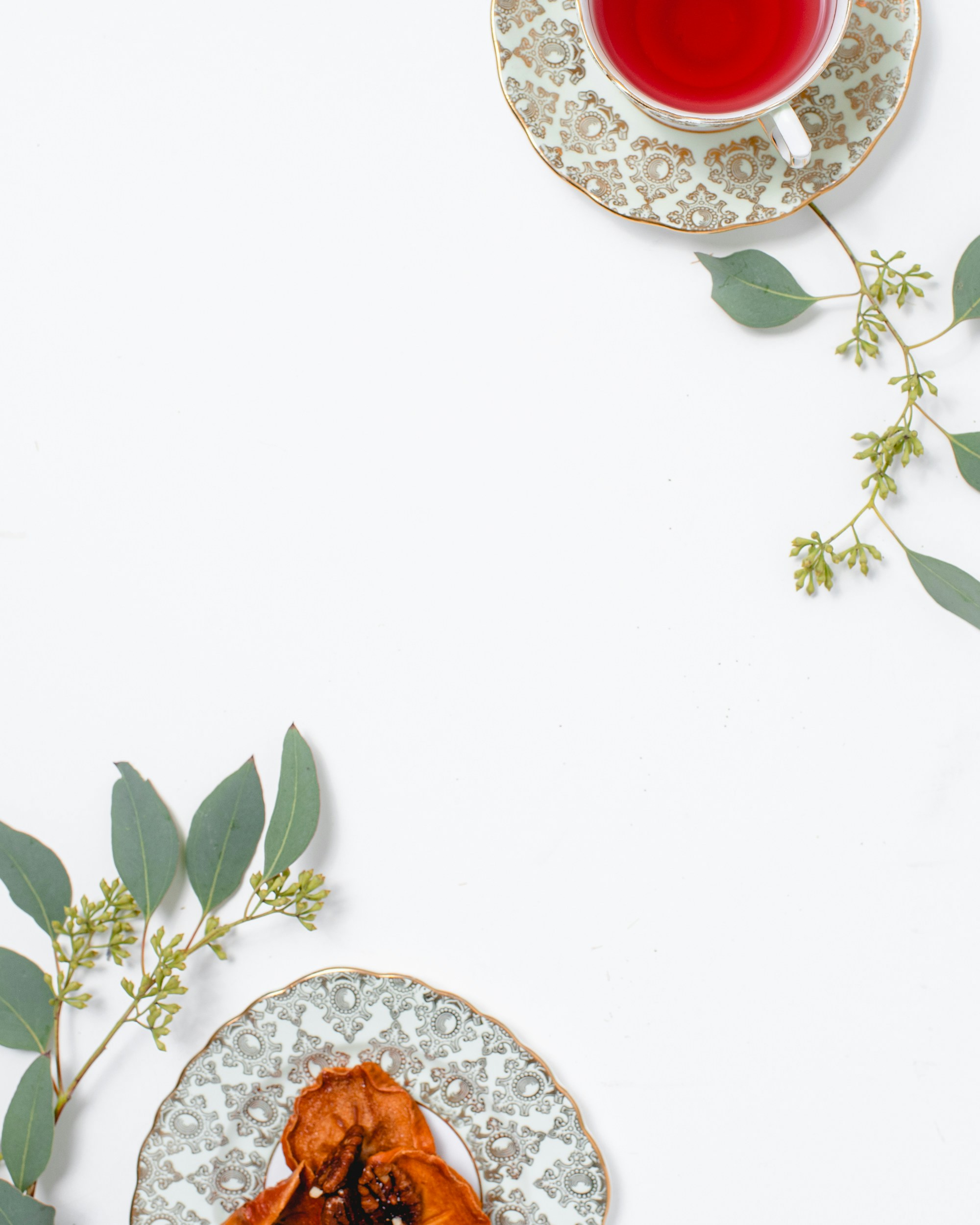Introduction: Exploring the Intertwined Worlds of Tea and Mindfulness
For centuries, tea has transcended its role as a mere beverage, holding profound historical and cultural significance across the globe. Originating in ancient China, tea’s journey began as a medicinal elixir before captivating palates with its diverse flavors and aromas. From the elaborate ceremonies of Japan to the comforting afternoon tea rituals of Britain, various cultures have embraced tea, transforming it into an instrument of mindfulness and a catalyst for connection.
In our contemporary world, characterized by relentless activity and distractions, the practice of preparing and enjoying tea offers a sanctuary of calm. It encourages us to decelerate, savor each moment, and reconnect with ourselves. The seemingly simple act of brewing tea becomes a meditative experience, engaging our senses fully. We observe the delicate dance of unfurling leaves, inhale the fragrant steam, and appreciate the nuanced flavors, cultivating a heightened state of awareness and presence. These moments of mindful attention ground us in the here and now, offering respite from the mental clutter of daily life.
The mindful enjoyment of tea extends beyond the individual experience, enriching social interactions as well. Sharing a pot of tea with loved ones fosters meaningful conversations, reduces stress, and nurtures a sense of community. As the tea ritual unfolds, participants are encouraged to be fully present with each other, listening attentively and responding with genuine care. This shared experience strengthens bonds and deepens connections, further enhancing the overall tea experience.
By reflecting on your personal tea experiences, you can uncover how tea rituals naturally promote mindfulness. Have you ever paused amidst a busy day to savor a cup of tea? Understanding the interplay between tea and mindfulness allows us to appreciate the profound connection we share with this ancient beverage. Embracing this practice can profoundly impact our daily lives, inviting peace and tranquility into the midst of chaos.
Delving into the Rich Tapestry of Tea History
The story of tea unfolds in ancient China, circa 2737 BCE, with the legendary Emperor Shen Nong. As the tale goes, leaves serendipitously drifted into the Emperor’s pot of boiling water, marking the inception of tea’s revered status. From its humble beginnings as a medicinal brew, tea ascended to become a cornerstone of Chinese culture, intertwined with ceremonies and traditions that emphasize mindfulness and connection.
Tea’s cultural significance blossomed during the Tang Dynasty (618–907 CE), an era marked by the formalization of tea-drinking practices. These elaborate ceremonies, often centered around the meticulous preparation of matcha, cultivated a deep sense of mindfulness and tranquility. Through this lens, tea evolved into more than just a drink; it became a pathway to introspection and interpersonal connection.
As trade routes expanded, tea’s allure spread across continents. By the 16th century, European traders had encountered this exotic beverage, sparking its widespread popularity. The British, in particular, embraced tea with fervor, transforming it into a symbol of their national identity. The quintessential afternoon tea ritual, introduced by Anna Russell, Duchess of Bedford, in the early 1840s, became a cherished tradition, highlighting mindfulness through the simple act of shared enjoyment.
Throughout history, tea has served as a cultural bridge, facilitating dialogue between diverse societies. Countless stories attest to tea’s power to unite people from different backgrounds, forging connections that transcend language and cultural barriers. In our increasingly interconnected world, tea continues to embody these timeless qualities, fostering mindfulness and unity.
Unveiling the Health Benefits of Tea: A Holistic Perspective
Tea has been celebrated across cultures not only for its diverse flavors and aromas but also for its remarkable health benefits. From green and black teas to a vast array of herbal infusions, each variety offers unique advantages that can significantly enhance mindfulness practices. Research indicates that tea is a rich source of antioxidants, particularly polyphenols, which combat oxidative stress in the body. Green tea, for instance, is renowned for its high concentration of catechins, a type of antioxidant that bolsters immune function and promotes overall well-being.
Beyond physical health, tea consumption has been linked to improved mental clarity and cognitive function. Certain teas, such as black tea and matcha, contain moderate amounts of caffeine, known to boost alertness and concentration. L-theanine, an amino acid found in green tea, promotes relaxation while simultaneously enhancing focus, creating an ideal state for mindfulness exercises. The simple act of pausing to enjoy a cup of tea can be inherently calming, fostering a more present and mindful mindset.
Herbal teas, such as chamomile and peppermint, offer calming properties that can alleviate stress and anxiety. The ritual of brewing and savoring these infusions can be a form of meditation in itself, providing an opportunity for self-reflection and relaxation. However, it’s important to consume tea in moderation. Excessive intake, particularly of caffeinated teas, can lead to unwanted side effects like headaches or sleep disturbances. Individuals with underlying health conditions should consult with healthcare professionals before incorporating tea into their daily routines to ensure compatibility with their specific needs. Overall, incorporating tea as part of a mindful practice can offer numerous benefits for both body and mind.
Mindfulness: Cultivating Presence in the Modern World
Mindfulness, defined as the mental practice of fully engaging with the present moment without judgment, has its roots in Buddhist traditions. Known as ‘sati’ in Pali, mindfulness signifies heightened awareness and consciousness. Over time, this ancient practice has transcended its spiritual origins, becoming integrated into various disciplines, including psychology, education, and wellness, underscoring its relevance to contemporary life.
In today’s fast-paced society, mindfulness serves as an antidote to constant distractions. It allows individuals to cultivate a deeper understanding of themselves and their experiences, fostering a more thoughtful and less reactive approach to life’s challenges. By cultivating mindful awareness, even mundane activities can become moments of significance, enriching the quality of everyday life.
The ritual of tea drinking offers a tangible example of mindfulness in action. This ancient practice, steeped in history and tradition, provides a unique opportunity to immerse oneself in the present moment. From boiling the water to observing the leaves unfurl, each step is rich with sensory detail. Engaging these senses evokes a profound sense of presence, allowing one to appreciate the subtleties of flavor, aroma, and texture. A simple cup of tea transforms into a mindful moment, creating space for reflection and tranquility amidst the chaos of daily routines.
Numerous individuals have shared transformative experiences resulting from incorporating mindfulness into their lives. One might recall a particularly stressful day where a mindfully savored cup of tea brought a wave of calm and clarity, positively influencing subsequent interactions. These anecdotes highlight the potential of mindfulness, often embodied in simple practices like tea drinking, to nurture mental well-being and resilience.
Crafting Your Own Mindful Tea Ritual: A Personalized Approach
Creating a mindful tea ritual involves intentional preparation that not only elevates the tea-drinking experience but also enhances overall mental well-being. The first step is to designate a comfortable and quiet space in your home where you can engage with your tea without distractions. This space should be a haven of tranquility, perhaps adorned with soft lighting, calming colors, or natural elements that resonate with you.
Once you’ve chosen your space, set a clear intention for your tea ritual. What do you hope to achieve during this practice? Are you seeking relaxation, reflection, or meditation? Setting an intention provides a framework for approaching your tea with purpose, deepening your connection with the present moment and the soothing qualities of the beverage.
Next, engage all your senses in the preparation process. Observe the color and aroma of your chosen tea leaves. Listen to the sound of the boiling water and watch the steam rise. As the tea steeps, savor its fragrance before taking your first sip. Pay close attention to the flavors and sensations as the warm liquid graces your palate. This sensory awareness is key to cultivating a mindful tea practice.
Personalize your ritual with meaningful touches. Incorporate meditative breathing exercises, journal your thoughts as you sip your tea, or adorn your space with seasonal flowers or herbs. These personal touches create a deeper connection, transforming a simple cup of tea into a profound moment of mindfulness. The essence of this ritual lies in maintaining presence and attention throughout the entire process, allowing your tea experience to become a cherished daily practice.
Cultural Tea Rituals Around the World: A Journey Through Tradition
Tea transcends its function as a mere beverage; it serves as a vital element of cultural identity and communal bonding in numerous societies worldwide. Across diverse cultures, tea rituals reflect a deep appreciation for mindfulness and serenity. The Japanese tea ceremony, known as Chanoyu, is a prime example. This intricate ritual emphasizes aesthetics, respect, and tranquility, guiding participants to fully savor each moment. The meticulous preparation of matcha, heightened by the rhythmic whisking, embodies mindfulness, drawing participants into a state of focused presence.
British afternoon tea, with its roots in the 19th century, provides not only a respite from daily activities but also a cherished opportunity for social connection. Complete with finely brewed black tea, delicate sandwiches, and pastries, this tradition offers moments of reflection amidst lively conversation. The ritualistic pouring of tea fosters connection and care among friends and family, reminding us of the importance of community and shared experiences.
The Moroccan mint tea ritual exemplifies hospitality and generosity. Green tea is steeped with fresh mint and copious sugar, then served in ornate glasses. The theatrical pouring of tea from a height symbolizes the welcoming spirit of Moroccan culture, inviting guests to slow down and connect deeply with one another. These diverse tea practices offer valuable lessons in mindfulness, encouraging a profound appreciation for both the shared and solitary experiences that tea can foster.
Tea and Mental Well-being: A Soothing Brew for the Mind
Tea has long been associated with numerous health benefits, particularly in the realm of mental well-being. Studies suggest that the act of brewing and consuming tea can have a calming effect on the mind, offering a mindful respite in our often hectic lives. The ritual of tea preparation becomes a meditative practice, fostering introspection and tranquility.
Different tea varieties offer unique properties that support mental wellness. Chamomile tea is renowned for its soothing qualities, often recommended for anxiety and sleep disorders. Green tea contains L-theanine, an amino acid that promotes relaxation without drowsiness, potentially enhancing focus and clarity. This makes it an ideal choice for those seeking to balance productivity with mindfulness.
Beyond the physiological effects, tea consumption often encourages moments of reflection and connection. Many find that taking a few moments to brew a cup of tea allows them to slow down and engage in mindfulness. Consider the story of a busy professional, overwhelmed by daily stress, who began incorporating tea breaks into her routine. These breaks became not only enjoyable respites but also opportunities for introspection, leading to improved mental clarity and resilience.
While tea can be a valuable tool for supporting mental health, it’s crucial to remember that it should not replace professional intervention for serious mental health concerns. Integrating mindfulness practices alongside dietary changes, such as incorporating tea, can offer a more holistic approach to well-being. Engaging with tea mindfully can deepen your connection to yourself and the present moment.
Mindful Tea Practices for Everyday Life: Integrating Tranquility into Your Routine
Integrating mindfulness into your daily tea routine can significantly enhance your overall experience, even amidst a busy schedule. Here are some practical tips for seamlessly incorporating mindfulness into your tea practices, transforming each cup into a moment of tranquility.
Create a designated ‘tea moment’ in your day. Whether at home or in the office, set aside a specific time for your tea break, pausing all other activities. Even five minutes of undistracted tea enjoyment, focusing on the warmth of the cup, the aroma, and the colors, can ground you and bring clarity to your thoughts.
Engage all your senses during tea preparation. Pay attention to the sound of the boiling water, the texture of the tea leaves, and the sight of the rising steam. This intentional awareness elevates the act of brewing tea into a mindful experience. Incorporate deep breathing exercises before your first sip, inhaling and exhaling slowly to center your mind and enhance relaxation.
On particularly busy days, on-the-go mindfulness practices can be invaluable. If time is limited, utilize travel mugs or tea sachets for convenience. Sip your tea slowly during brief breaks throughout the day. Even a minute of mindfulness can provide a refreshing boost to your routine.
Maintain a mindfulness journal to record reflections or feelings experienced during your tea moments. This practice deepens your connection to the ritual, fostering a more mindful relationship with tea over time. By intentionally integrating these mindful practices into your daily life, you can create a sanctuary of calm amidst the chaos.
Conclusion: Embracing the Journey of Tea and Mindfulness
Exploring the rich history of tea and its inherent connection to mindfulness reveals that this cherished beverage is far more than a simple drink. Tea invites us to engage with the present moment, creating space for reflection and self-discovery. As you incorporate tea into your daily life, consider its potential as a platform for cultivating mindfulness. Whether savoring a quiet cup in solitude or sharing a pot with loved ones, each tea moment offers an opportunity to be fully present, allowing thoughts and worries to dissipate.
Reflect on your own tea practices. How does tea fit into your life, and what role does mindfulness play? Do you rush through your cup, or do you savor the experience? Recognizing these patterns can deepen your appreciation for tea and enhance your mindfulness practice. Share your experiences and challenges with others, through conversations or online communities. Engaging in discussions about tea and mindfulness not only strengthens your practice but also inspires others to explore their own connections.
Cultivating mindfulness through tea is an ongoing journey of exploration, embracing curiosity and openness. Allow the ritual to unfold naturally. In doing so, you may discover deeper insights, a heightened sense of awareness, and a richer experience with both tea and life itself. We invite you to integrate this practice into your daily routine and share how it transforms your perspective on mindfulness. Together, we can cultivate a community that celebrates the harmonious interplay of tea and mindful living.








Leave a Reply